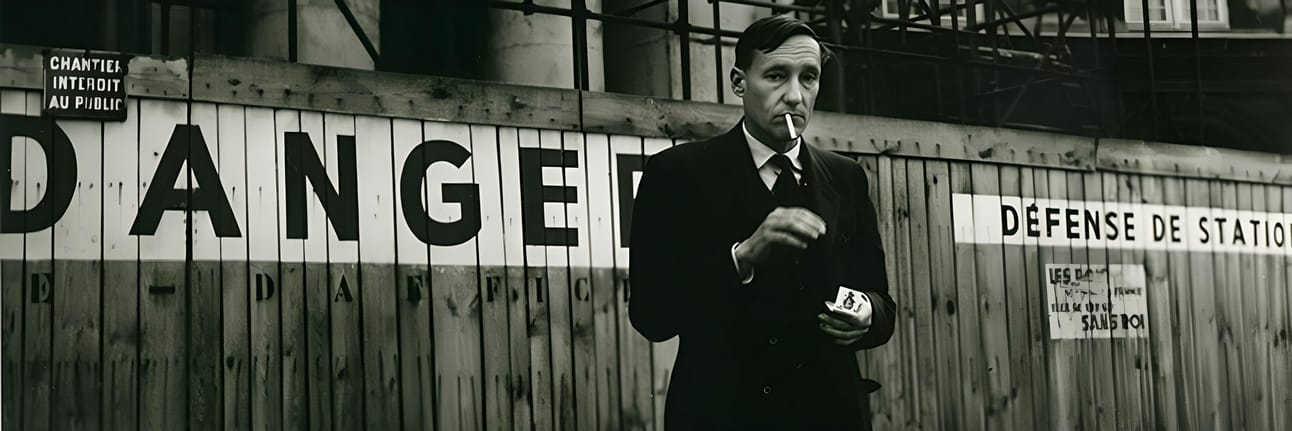
Once again, I'm absolutely plagued with a desire to quit everything normal, to mentally and socially withdraw from everything one is supposed to know...
If one reads the biography of any great writer born before the 1940s, one is likely to be struck by the number of absurd and idiosyncratic twists and turns, so many personal sidequests that have nothing to do with any of the big issues of the time.
Ironically, these great writers who live disconnected lives are sometimes remembered, much later, as symbols of the big issues of their time. But this false memory syndrome is a kind of recuperation by the institutions, which will always rewrite their greatest defectors back into their official narratives.
If the great writers of the past had been reading Twitter every day and articulating their perspectives by creating TikToks, Twitter threads, and Instagram stories, it would have been much harder for them to live out the idiosyncratic paths that made them great writers.
The early "Beats," for instance—William S. Burroughs, Allen Ginsberg, and Jack Kerouac in New York City in the 1940s—spent many hours over many months engaged in random activities that had very little to do with writing—like psychoanalyzing each other or play-acting little skits, among other creative but completely random and private diversions.
They hardly stopped for the atomic bomb dropped on Hiroshima. They certainly had opinions about the issues of the day, and periodically expressed them, but evidenced in their use of time is an awareness that opinions about large social issues are relatively inconsequential.
Living, on the other hand, is highly consequential.
📖
I've been reading this biography of Burroughs by Ted Morgan, which inspired today's newsletter.
Casually dropping a memorized line from Shakespeare while drinking with your friends was a kind of social performance worth optimizing for, whereas public grandstanding about some distant political issue was not. Today it's the opposite. One will put countless hours of effort into writing impressive tweets, but one would never spend 30 minutes learning a dance, or a scene from a play, just to make a friend laugh at dinner.
Many of the great artists and thinkers of the past refused to give their attention and energy to the public sphere, choosing instead to merely bounce it off each other. In doing so, they generated culture in the technical sense, like yeast in a petri dish.
If the great writers of the past had been plugged into public and digital communication networks rewarding them for constantly reading public information and publishing their opinions about public information, many of history's greatest countercultures would never have emerged.
I'm increasingly convinced this is the most important task right now, at least for independent writers, creators, and developers.
We should try to disconnect from all of these culture-substitutes, which have been spoonfed to us by corporations in naked bids for cognitive control. And in the space that is opened up thereby, we should find ourselves re-wilding how we think, speak, write, and interact in small, private groups. We have to seek the good, the beautiful, and the true, at all costs, but from a place of cultivated ignorance rather than heavy over-knowing.
One should never seek to be weird or "creative." That's always lame. One should seek to be utterly normal, but without knowing what is normal to others.
If you can get real people thinking and acting freely, in private, with nothing external to gain, with disregard for the intelligible public order (including the dogmatic anti-knowledge of social media "dissidence"), you'll quickly have a subcultural war machine.
It's not rocket science, but it's strange enough that most people will find it prohibitively difficult, especially in today's digitally mediated context. Thus, any group that can foster these conditions is likely to have an edge over other groups, even other groups that might be smarter, wealthier, etc.